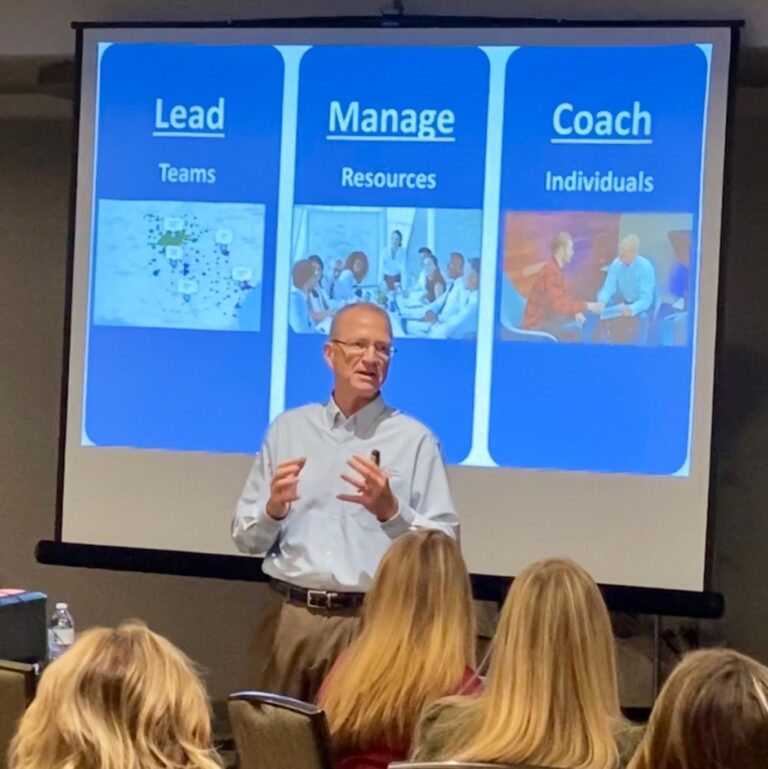Use the Buddy Shirt Method to develop teamwork
Everyone knows or should know that we can all accomplish more through teamwork. And most of us in business actually practice fairly good teamwork behavior.
The Problem:
However, there is a group of employees in our business that historically struggles with teamwork. This group can sometimes even feel like they are above the rest of us. Feeling superior, they often practice poor teamwork skills and create resentment within the organization.
By now, I’m sure you realize, I am referring to the sales team. Yes, the people designed to pull all the products and services into one supporting team to focus on gaining and keeping customers. This group can often be seen as anti-teamwork. Ranting, raving, demanding….
Hold on though, before you condemn them for their bad behaviors. As, they will often explain they do it all for a good reason – to “sell a customer”.
I will leave it up to you if bad behaviors are justified by good reasons or good results. But I know this environment creates problems for many companies as department silos build up with this type of friction. And I know that I have personally been on all sides of this situation, both causing and trying to resolve teamwork issues.
This situation quickly becomes a culture or way of doing business. The sales team yells. The other departments comply but resent them. Until a new manager gets in who is production oriented or administrative oriented. Then, the focus goes 180 degrees the other way. Production, distribution, or admin rules are put in place and enforced with an iron fist to clamp down on these renegade salespeople. Again, resentment builds. Salespeople blame the rules for their lost sales. The ebb and flow of teamwork goes on and on.
Solutions (that work a little):
Here are some of the usual methods companies use to promote teamwork:
- Company manager sending the teamwork message in a speech at a meeting
- Training department putting on teamwork training sessions
- Motivational speaker at a company meeting
- Promoting examples of teamwork in the company newsletter
These are all good and should provide some movement in the right direction. However, I see these as scratching the surface. Maybe, they get a few people to soften up and think about being a better teammate. So, not bad by any means, but most will write these off as not applying to their teamwork problems. Secondly, these personal relationship problems in the office and sales teams can be very emotionally charged situations. Meaning, they truly don’t like each other. It’s one thing to see two strangers on a training video getting along. It’s completely different when your manager wants you to get along with someone you have had personal disagreements with.
That’s why, I see the buddy shirt system as a better solution.
A Better Solution (the Buddy Shirt)
At a recent family gathering, we were discussing the funny stories of sibling rivalry and the methods that our parents used to make us get along. My daughter-in-law mentioned the worst thing was when her dad used something called the buddy shirt. Apparently, when she and her brother weren’t getting along, her dad would make them wear one of his t-shirts. At 8 and 10 years of age, they could both fit inside of one t-shirt. The concept was forced cooperation or what I am referring to as “forced teamwork”. As she “fondly” recollected how much she hated it, you could tell it did have an effect on teamwork/cooperation with her and her brother. A brilliant idea, I wish I had thought of it for my own kids. (I wonder if I could still use it on them in their 30’s).
How to apply this method to your team?
No, don’t bring a large T-shirt to work. However, if you want teamwork to truly develop, you need them to come together in one place and force them to meet. You can’t force teamwork, but you can force the meeting. Why force? Because, just like kids, we aren’t wired to be team players. In sales, we are wired to get sales, grow our commission, get to the top of the charts, and do what it takes to gain customers. In production, we are wired to produce the most products most efficiently with the lowest production costs. Same for every department. Our goals are often contrary to the others in our company.
If you are the leader of these multi-departmental groups, then it is easy for you to facilitate the mandatory teamwork. Just schedule the face-to-face meeting and hold it. If not the manager, then you need to do some coordination to get the right players in one room.
This has to be face-to-face, not virtual. You might have Zoom sessions to reinforce or update activities, but the real work is done in person. Build in work and recreation. Even if the recreation is simply sharing lunch or an evening round of drinks. If at all possible, put some form of physical movement into the gathering: golf, bowling, fishing. There are several restaurant chains that involve games like go-karts, free throw shooting, or ax throwing. I wouldn’t recommend the ax throwing unless the meeting went well that day.
With any activity, assign groups and assign seating. Don’t let them covey up like flocks of quail and sit next to their closest departmental friend. Take the lead and assign seating that ensures a good mix.
Final thought:
People want to work in a positive teamwork culture. Think back to those times when you worked in a very strong teamwork culture and then think about a toxic environment that you had the misfortune of working in. Which do you prefer?
That’s why you have to force it. The people at the meeting will complain a lot about being there. Yet, deep down, they really want it to work out. They want someone to foster a positive teamwork environment. And if not, and you have that one person who is just determined to undermine any teamwork initiative: well, help them find a better place for them to be happy. Every company has an HR process to deal with toxic employees.
Final final thought:
Even if you are not a manager, as a salesperson, you can facilitate almost everything in this article except the last part I just mentioned about HR. You can suggest short gatherings to help resolve issues. You can go directly to the source of problems and meet with them first. If not resolved, then request a bigger audience to help develop teamwork.
Good luck and go Team!


